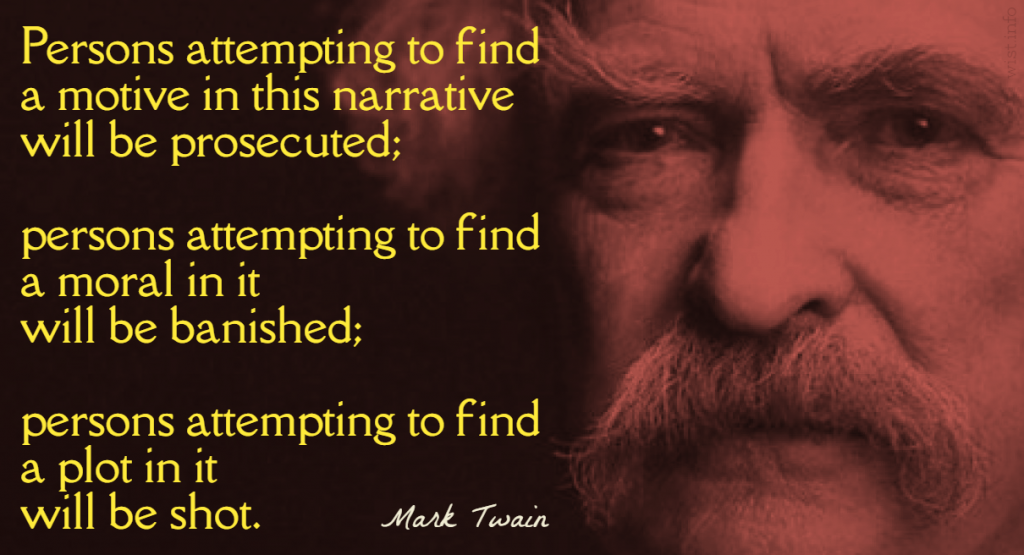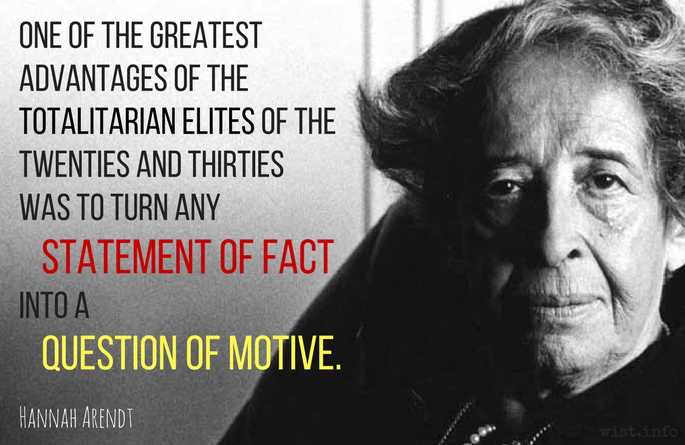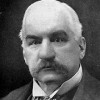But although tact is a virtue, it is very closely allied to certain vices; the line between tact and hypocrisy is a very narrow one. I think the distinction comes in the motive: when it is kindliness that makes us wish to please, our tact is the right sort; when it is fear of offending, or desire to obtain some advantage by flattery, our tact is apt to be of a less amiable kind.
Bertrand Russell (1872-1970) English mathematician and philosopher
“On Tact,” New York American (1933-02-01)
(Source)
Quotations about:
motive
Note not all quotations have been tagged, so Search may find additional quotes on this topic.
I now return the Sermon you were so kind as to enclose me, having perused it with attention. The reprinting it by me, as you have proposed, would very readily be ascribed to hypocritical affectation, by those who, when they cannot blame our acts, have recourse to the expedient of imputing them to bad motives. This is a resource which can never fail them, because there is no act, however virtuous, for which ingenuity may not find some bad motive.
Thomas Jefferson (1743-1826) American political philosopher, polymath, statesman, US President (1801-09)
Letter to Edward Dowse (19 Apr 1803)
(Source)
We must never forget that human motives are generally far more complicated than we are apt to suppose, and that we can very rarely accurately describe the motives of another.
Fyodor Dostoyevsky (1821-1881) Russian novelist
The Idiot, Part 3, ch. 3 (1869) [tr. Martin (1915)]
(Source)
Alternate translation: "Don't let us forget that the motives of human actions are usually infinitely more complex and varied than we are apt to explain them afterwards, and can rarely be defined with certainty." [tr. Magarshack (1955)]
Such closet politicians never fail to assign the deepest motives for the most trifling actions; instead of often ascribing the greatest actions to the most trifling causes, in which they would be much seldomer mistaken. They read and write of kings, heroes, and statesmen, as never doing any thing but upon the deepest principles of sound policy. But those who see and observe kings, heroes and statesmen, discover that they have headaches, indigestions, humours, and passions, just like other people; every one of which, in their turns, determine their wills, in defiance of their reason.
Lord Chesterfield (1694-1773) English statesman, wit [Philip Dormer Stanhope]
Letter to his son, #205 (5 Dec 1749)
(Source)
Persons attempting to find a motive in this narrative will be prosecuted; persons attempting to find a moral in it will be banished; persons attempting to find a plot in it will be shot.
— By Order of the AuthorMark Twain (1835-1910) American writer [pseud. of Samuel Clemens]
The Adventures of Huckleberry Finn, “Notice” (1884)
(Source)
One of the greatest advantages of the totalitarian elites of the twenties and thirties was to turn any statement of fact into a question of motive.
Hannah Arendt (1906-1975) German-American philosopher, political theorist
(Spurious)
This is frequently cited to Arendt, often to The Origins of Totalitarianism, (1951), but is not found as such in her works. The source appears to be a paraphrase of Arendt in a 1999 New Yorker article.
Stuart Elden suggested the following from The Origins of Totalitarianism, Part 3, ch. 11, might be original quotation the paraphrase was built on, though the overall meaning is different:
The elite is not composed of ideologists; its members’ whole education is aimed at abolishing their capacity for distinguishing between truth and falsehood, between reality and fiction. Their superiority consists in their ability immediately to dissolve every statement of fact into a declaration of purpose.
The last temptation is the greatest treason:
To do the right deed for the wrong reason.T. S. Eliot (1888-1965) American-British poet, critic, playwright [Thomas Stearns Eliot]
Murder in the Cathedral, Act 1 [Thomas] (1935)
(Source)
Give me but virtuous actions, and I will not quibble and chicane about the motives.
Lord Chesterfield (1694-1773) English statesman, wit [Philip Dormer Stanhope]
Letter to his son, #161 (5 Sep 1748)
(Source)
A man always has two reasons for what he does — a good one, and the real one.
John Pierpont "J. P." Morgan (1837-1913) American banker and financier
(Attributed)
Quoted in Owen Wister, Roosevelt: The Story of a Friendship, p. 280 (1930). There's no record in Morgan's writings, and versions of the quote from others can be found in the early 1800s. See here for more details.
Sometimes given as "A man generally has two reasons for doing a thing: one that sounds good, and a real one."












